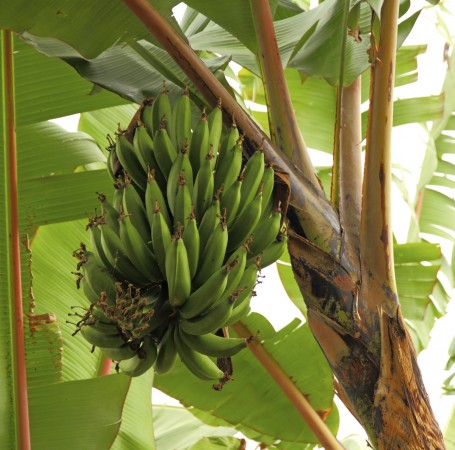Final preparations are underway for Fairtrade Fortnight from 27 February – 12 March, celebrating a movement to reduce inequality for workers and producers in the developing world.
And to find out just how much of a difference that the movement has made, Fairtrade International and the Fairtrade Foundation commissioned a study, looking at Colombia, the Dominican Republic and Ghana.
The research, by LEI Wageningen UR, highlights the benefits the Fairtrade Premium has brought to farm workers.
In all three countries, it found, most Fairtrade wageworkers are aware of the FT premium – 97% in Colombia, 93% in the Dominican Republic and 87% in Ghana.
Workers taking part in the survey said the premium has been used for different purposes in their countries.
In Ghana, 90% of those spoken to said the premium was spent on food subsidy. In Colombia, the premium was mostly used for education, training and housing. In the Dominican Republic, training was also a priority, but many reported the premium was spent on cash payments and health.
Asked how future premiums should be spent, workers from the three countries had similar ideas, with cash payments, education and housing seen as priorities.

Workers told researchers how important education is to them. One woman said: “I want to become a professional in psychology and work on occupational health at banana plantations. I can achieve this goal because Fairtrade gives me the opportunity to study at low cost without quitting my job.”
On several plantations in each country, a large part of the premium was spent on administration costs – such as initial certification, audits or premium committees, but none of the wageworkers reported this.
Another key area of Fairtrade is for workers having a say – and here, the results from the three countries presents a mixed picture.
Wageworkers were asked if they had submitted any ideas for the use of the Premium; whether they attended the last Fairtrade meeting; and how many Fairtrade meetings they attended in the last year.
In Ghana, only 30% of wageworkers had attended the last meeting, and they had attended an average of only one meeting the past year.
Figures were better in the Dominican Republic – with 65% attending the last meeting, and an average of four meeting attended in the past year, and Colombia, where 91% of those surveyed attending the last meeting, and an average of nine meetings attended.
The proportion of wageworkers suggesting ideas for how to spend the Premium was low – 44% in Ghana, 51% in the Dominican Republic, and 35% in Colombia.
The report adds that participation is not always easy – in Ghana, one plantation is so large that the participation of each worker would not be feasible – but says this raises “some doubt on the individual decision-making power of wageworkers, especially the low percentage of wageworkers who proposed an idea for spending of the premium”.
But several workers told researchers they were happy with how the funds are managed.
One said: “Funds administration has been very good, and I am confident that there are many wageworkers who are qualified to manage this money.”
Another told interviewers: “At the beginning it was difficult for us to accept the way the funds have to be spent, but when we saw the results we changed our minds. We thought it was what the plantation owner wanted us to do, but when we saw the benefits we started believing.”
Protecting coffee growers in a changing market
A report from Fairtrade International shows how Fairtrade protects coffee farmers who would otherwise be vulnerable to fluctuations in price in a volatile market.
The reports, looking at Indonesia, Mexico, Peru, and Tanzania found that in 2013, when prices were low, Fairtrade farmers received higher prices than their non-Fairtrade counterparts – ranging from 8% higher in Peru to 30% in Mexico.
But at times of high prices, such as 2011 and 2012, “only POs with very high quality coffee were able to negotiate higher prices than those offered by other buyers”, the report adds.

